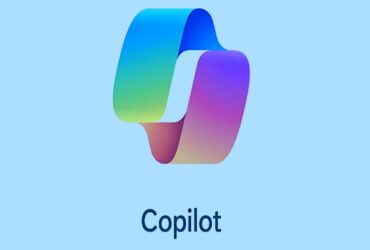The demand for efficient Learning Management Systems (LMS) has skyrocketed in the ever-evolving world of digital learning and corporate training. Businesses are constantly searching for platforms that streamline training processes and integrate seamlessly with other enterprise solutions. One platform that frequently comes up in discussions is Workday. But is Workday an LMS? This question often puzzles many, as Workday is primarily known for its Human Capital Management (HCM) capabilities. However, Workday also offers robust learning solutions that can function similarly to traditional LMS platforms. In this article, we will delve deep into what makes Workday a viable option for learning management, exploring its features, benefits, and how it compares to conventional LMS platforms. By understanding Workday’s capabilities, you can determine if it meets your organization’s training and development needs.
Is Workday An LMS?
Yes, Workday offers LMS-like features through its learning module. It provides tools for creating, managing, and tracking training programs, integrating seamlessly with Workday’s HCM suite. It’s ideal for organizations seeking a unified HR and learning management system.
Analytics and Insights for Smarter Training Decisions
To understand whether Workday functions as an LMS, it helps to look at its main features. Workday Learning is part of the larger Workday system and is designed to support modern learning and development needs. Unlike traditional LMS platforms that focus mainly on course delivery, Workday Learning connects closely with HR functions, linking training to performance goals, talent growth, and workforce planning.
A notable strength of Workday Learning is its simple and engaging interface. Employees can easily access training materials, which include videos, documents, and interactive modules. This variety supports different learning styles.
The platform also provides strong analytics. Organizations can monitor progress, spot skill gaps, and measure training success through clear dashboards. This gives leaders information that supports better decisions.
Workday Learning encourages social learning by allowing employees to share ideas, join discussions, and leave feedback. This helps build a learning focused culture.
Mobile access is another advantage, giving employees the ability to complete training at convenient times. Since it connects smoothly with Workday’s HCM tools, it creates a single system for managing both training and HR needs.
Key Features Of Workday Learning
- User Experience and Accessibility: Workday Learning is designed with the user in mind, offering an intuitive and engaging interface. This focus on user experience ensures that employees can easily navigate the platform and complete their training programs efficiently.
- Content Variety and Flexibility: The platform supports various content types, including videos, documents, and interactive modules. This flexibility allows organizations to create diverse, engaging training programs catering to different learning styles.
- Analytics and Reporting: Workday Learning’s robust analytics and reporting tools enable organizations to track employee progress, identify skill gaps, and measure the effectiveness of their training programs. These insights are crucial for optimizing learning and development strategies.
- Social Learning and Collaboration: Workday Learning fosters a culture of continuous learning through its social learning features. Employees can share knowledge, participate in discussions, and provide feedback, enhancing the learning experience.
- Mobile Compatibility: With mobile compatibility, Workday Learning ensures that employees can access training materials anytime, anywhere. This flexibility is essential for accommodating the diverse needs of today’s workforce.
Benefits Of Using Workday As An LMS
Workday Learning offers numerous benefits for organizations seeking a comprehensive learning management solution.
1. Unified HR and Learning Platform: Integration with Workday’s HCM suite ensures a seamless experience for managing all employee lifecycle aspects.
2. Enhanced User Experience: The intuitive interface makes engaging with and completing training programs easy for employees.
3. Diverse Content Support: Organizations can create a wide range of training materials to cater to different learning styles.
4. Data-Driven Insights: Advanced analytics and reporting tools provide valuable insights into training effectiveness and employee progress.
5. Collaborative Learning Environment: Social learning features encourage knowledge sharing and continuous improvement.
6. Flexibility and Accessibility: Mobile compatibility ensures that employees can access training materials anytime, anywhere.
Alternative Perspevctive: Comparing Workday To Traditional LMS Platforms
While Workday Learning offers many advantages, it’s important to compare it to traditional LMS platforms to understand its unique value proposition. Traditional LMS platforms, such as Moodle and Blackboard, have been the go-to solutions for many organizations for years. These platforms are specifically designed for learning management and often come with a wide range of features tailored to educational settings.
One area where traditional LMS platforms excel is customization. Many traditional LMS solutions offer extensive customization options, allowing organizations to tailor the platform to their specific needs. This level of customization can be beneficial for organizations with unique training requirements or those that need to integrate with other systems.
However, traditional LMS platforms may lack the seamless integration with HR processes that Workday offers. For organizations looking for a unified solution that combines HR management with learning and development, Workday’s integrated approach can be a significant advantage. This integration ensures that learning activities are closely aligned with broader HR goals, such as performance management and talent development.
Another consideration is the user experience. While many traditional LMS platforms have made strides in improving their interfaces, some may still feel outdated compared to newer solutions like Workday. The user-friendly design of Workday Learning can enhance employee engagement and make it easier for employees to complete their training programs.
In terms of scalability, both traditional LMS platforms and Workday Learning offer robust solutions. However, Workday’s cloud-based infrastructure provides additional flexibility and scalability, making it easier for organizations to expand their learning programs as needed.
Implementing Workday Learning In Your Organization
- Assessing Your Needs
Before implementing Workday Learning, it’s crucial to assess your organization’s specific learning and development needs. This assessment will help determine whether Workday Learning is the right fit for your organization. - Integration with HR Processes
One of the key benefits of Workday Learning is its integration with Workday’s HCM suite. This integration ensures that learning activities are aligned with broader HR goals and simplifies administrative tasks. - Customizing Your Learning Programs
Workday Learning offers a range of customization options, allowing you to tailor your training programs to meet the unique needs of your organization. This customization can enhance the relevance and effectiveness of your training initiatives. - Engaging Your Employees
To maximize the benefits of Workday Learning, it’s important to engage your employees in the learning process. This engagement can be achieved through user-friendly interfaces, diverse content types, and social learning features. - Measuring Success
Finally, it’s essential to measure the success of your training programs using Workday Learning’s analytics and reporting tools. These insights will help you continuously improve your learning and development strategies.
Conclusion
In conclusion, while Workday may not be a traditional LMS, its learning module offers a comprehensive solution for managing employee training and development. With features like seamless HR integration, diverse content support, advanced analytics, social learning, and mobile compatibility, Workday Learning provides a robust platform that meets the needs of modern organizations. Whether you’re looking to enhance your current training programs or implement a new learning solution, Workday Learning is worth considering for its ability to integrate learning with broader HR processes and deliver a seamless, engaging user experience.
FAQs
Is Workday A Traditional LMS?
No, Workday is not a traditional LMS. However, its learning module offers many LMS-like features and integrates seamlessly with Workday’s HCM suite.
What Types Of Content Does Workday Learning Support?
Workday Learning supports a variety of content types, including videos, documents, and interactive modules, providing a diverse learning experience.
How Does Workday Learning Integrate With HR processes?
Workday Learning integrates with Workday’s HCM suite, aligning learning activities with performance management, talent development, and workforce planning.
Can Workday Learning Be Accessed On Mobile Devices?
Yes, Workday Learning is mobile-compatible, allowing employees to access training materials anytime, anywhere.
What Are The Benefits Of Using Workday Learning?
Benefits of Workday Learning include a unified HR and learning platform, enhanced user experience, diverse content support, data-driven insights, collaborative learning, and flexibility and













































Leave a Reply